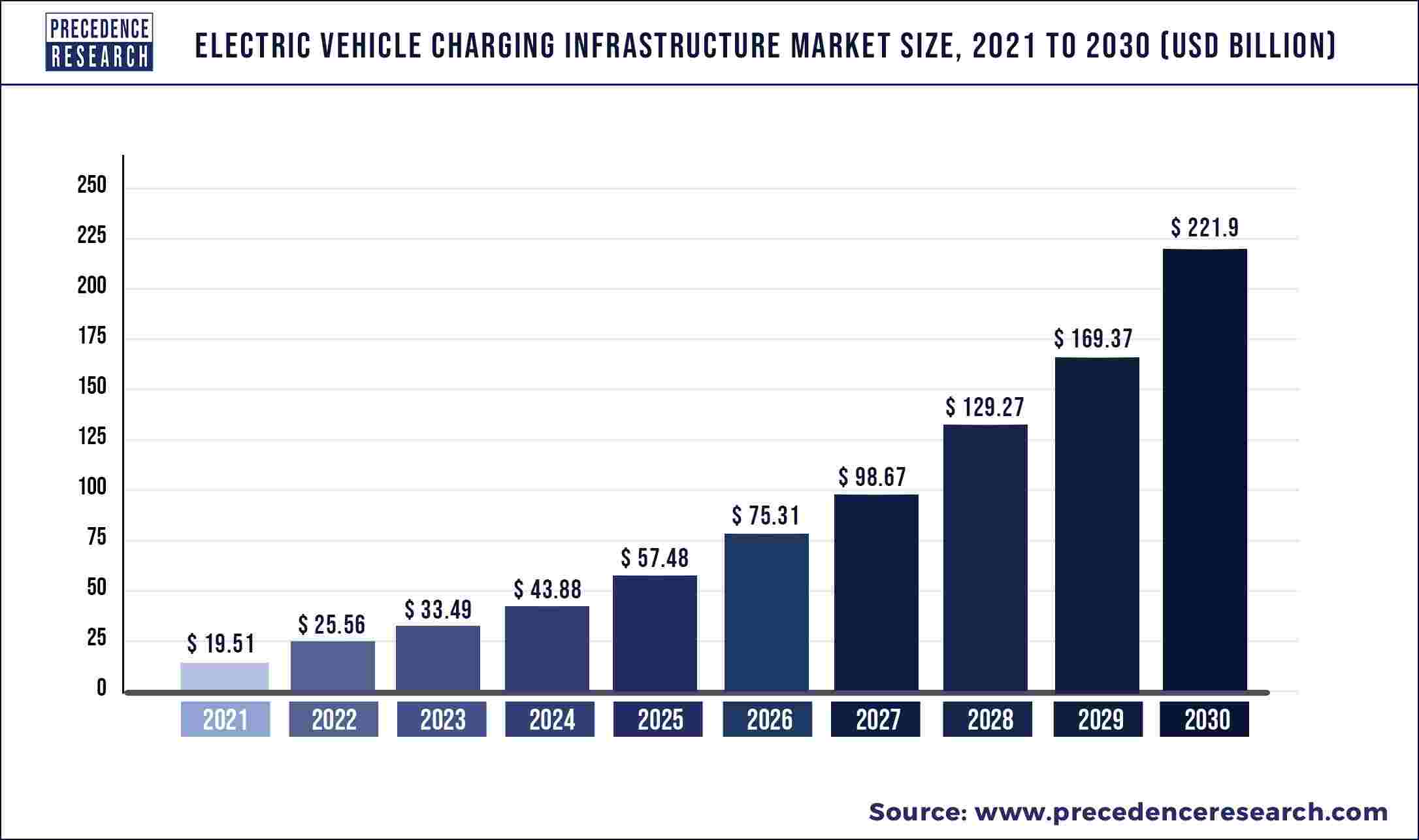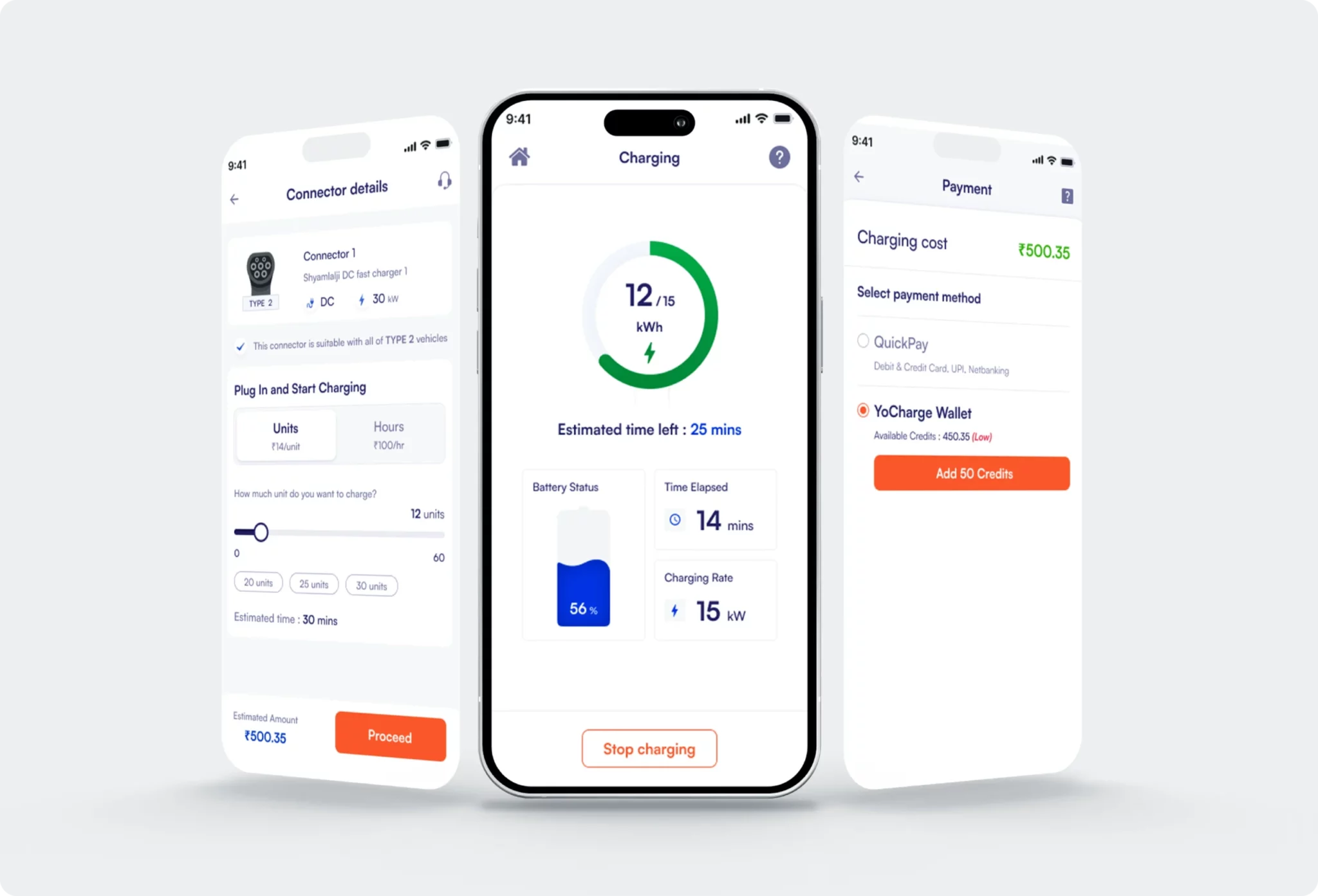
In recent years, electric vehicles (EVs) have become increasingly popular owing to their eco-friendly features and cost-effectiveness. However, one of the biggest challenges for EV owners is finding a reliable and accessible charging station. This is where EV charging software comes in – it provides drivers with real-time information on the location and availability of charging stations, as well as the ability to reserve and pay for charging sessions. With the rising number of EVs, the market for EV charging software is expanding rapidly. In this article, we will explore the current market size and future growth potential of EV charging software.
Overview of the EV Charging Software Market
In 2022, the global market size for electric vehicle charging stations was USD 46.54 billion. It is projected to reach USD 417.35 billion by 2030, with a CAGR of 31.5% during 2022-2030. Within this market, the EV charging software segment is expected to experience significant growth.
According to estimates, the global ev charging software market was 980million USD in 2021 and is expected to reach around 26Billion USD by 2031, growing at a CAGR of 36.7% during the forecast period 2022-2031.
Factors Driving the Growth of the EV Charging Software Market
The increasing adoption of EV’s is the primary driver of the growth of the EV charging software market size. As more people switch to EV’s, the demand for charging infrastructure and related software is also increasing. The International Energy Agency (IEA) reported that the number of electric cars on the road surpassed 10 million in 2020 and is projected to reach 145 million by 2030. This rapid growth in EV adoption is expected to generate substantial demand for EV charging infrastructure market and software.

In addition to the increasing adoption of EV’s, government initiatives and regulations are also driving the growth of the EV charging software market. Many governments around the world are offering incentives and subsidies to encourage the adoption of EV’s, which in turn is driving the demand for EV charging infrastructure market and software. For example, the US federal government has set a goal of installing 500,000 charging stations across the country by 2030 and has allocated funding to support the development of EV charging infrastructure market.
Furthermore, technological advancements are also fueling the growth of the EV charging software market size. The development of smart charging technology, enabling efficient grid use and cost reduction, will drive EV and EV charging software adoption. Additionally, the use of renewable energy sources like solar and wind power creates new opportunities for the market.
Market Segmentation of the EV Charging Software Market
The EV charging software market can be segmented based on the type of software, end-users, and geography.
The market segmentation of EV charging software is based on the type of software, which includes mobile apps, web-based portals, and software platforms. Among these, mobile apps are the most commonly used software for EV charging. They enable users to access charging information and reserve charging sessions conveniently from their smartphones. On the other hand, businesses and organizations utilize web-based portals and software platforms to manage their EV charging infrastructure and offer charging services to their customers.

Based on end-users, the market can be segmented into residential, commercial, and public charging. Residential charging refers to charging at home, while commercial charging refers to charging at workplaces or other private locations. Public charging refers to charging stations in public areas, such as shopping malls, parking lots, and other public spaces.
North America leads the EV charging software market with high EV adoption and supportive government initiatives for infrastructure development.
The future of the EV charging software market looks promising, with several factors driving its growth. Factors such as EV adoption, government initiatives, regulations, and technological advancements are expected to drive market growth. Furthermore, the use of renewable energy sources presents new opportunities for the EV charging software market size.
A significant challenge in the EV charging software market is the lack of standardization in charging protocols and software. Diverse connectors and protocols pose challenges for EV owners to locate compatible charging stations. Ongoing standardization efforts aim to simplify this process and enhance accessibility.
The market faces the challenge of the high cost of EV charging station and related software. As the market grows and achieves economies of scale, the cost of EV charging infrastructure and software is expected to decrease.
Conclusion
In conclusion, the EV charging software market size is rapidly expanding, driven by the increasing adoption of EV’s, government initiatives and regulations, and technological advancements. The market is expected to experience growth in the coming years, presenting new opportunities in the renewable energy sector. Standardizing charging protocols and software, reducing costs, and embracing innovations are crucial for the market to reach its full potential. The future of the EV charging software market looks promising, with emerging solutions and innovations on the horizon.

Introducing YoCharge
Yocharge is the EV Charging Management Software Company. As a trusted partner of Charge Point Operators our goal is to simplify the launching, operation & growth of EV Charging Services Business. With help YoCharge you can launch your own branded EV Charging business in 7 days with custom mobile Applications.



